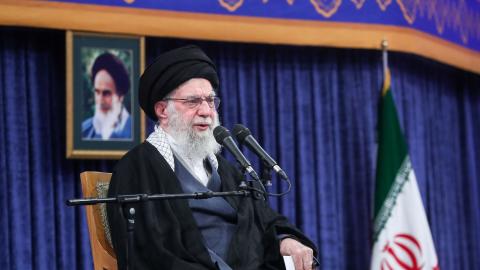The facial challenge to the FCC’s controversial network neutrality rules is under review by the DC Circuit. Even in the event of a government victory in that case, the legal battles against the Open Internet Order are far from over. Apart from the validity of the scheme itself, the FCC will likely confront an onslaught of as-applied challenges—some with problematic implications for the constitutionality of state-coerced network neutrality.
Many as-applied cases will involve resolving gray areas. The FCC is currently reviewing allegations that T-Mobile’s Binge On service—which offers unlimited access to video content from particular sources—violates anti-throttling rules. It will be up to judges to determine whether Binge On is an illegal attempt to circumvent the rules, or whether T-Mobile has found a legitimate loophole.
The FCC will also be faced with straightforward cases that open a very different can of worms: particularly, the right of broadband providers to censor objectionable Internet content on religious grounds. Such cases may be imminent. Jnet and True Vine Online (TVO) are two broadband providers whose business model is premised on blocking sacrilegious Internet content. These companies cater to niche markets: Brooklyn’s observant Jews in the case of Jnet, and religious Christians in TVO’s case. For customers, the main draw for choosing Jnet and TVO’s broadband services is their part and parcel content filtering.
But under the network neutrality rules, Jnet and TVO’s services are impermissible—and not simply as a matter of interpretation. Unlike T-Mobile’s legally ambiguous Binge On, Jnet and TVO’s operations are unequivocally in violation of the Open Internet Order’s anti-blocking rules.
The FCC may forbear from enforcing the rules against Jnet and TVO, preferring to avoid a religious freedom quagmire. But inaction will not necessarily avoid litigation. It is easy to imagine that a content provider blocked by Jnet or TVO would demand that the FCC enforce the network neutrality rules and prohibit religious-based blocking.
Fortunately, Jnet and TVO are not powerless in the face of these oppressive regulations. Thanks to the Religious Freedom and Restoration Act (RFRA), a federal statute that prohibits the federal government from burdening an individual’s religious exercise, Jnet and TVO would likely be granted an exemption to the anti-blocking rule. A successful challenge under RFRA is especially probable in the wake of Burwell v. Hobby Lobby, in which the Supreme Court held that RFRA exempted Hobby Lobby from the Affordable Care Act’s requirement that companies of a certain size pay for employees’ contraception. If anything, Jnet and TVO’s RFRA case is even stronger than Hobby Lobby’s: the network neutrality rules do not merely burden Jnet and TVO by forcing them to pay for something religiously objectionable, but threaten to shut down their businesses entirely.
A successful RFRA challenge on the part of Jnet or TVO would have civil rights implications beyond the immediate context. A court finding that the network neutrality rules harm Jnet and TVO’s religious liberty would implicitly acknowledge that these broadband providers possess editorial discretion in controlling the content over their networks. But that is precisely what the FCC denied in countering First Amendment challenges to the Open Internet Order. To escape constitutional scrutiny, the Commission declared that broadband providers were mere dumb pipes, charged with blindly transmitting content pursuant to the Internet user’s requests. But as is clear from the case of Jnet and TVO, this is a myopic portrayal of the speech interests at stake, and network neutrality imposes serious burdens on broadband providers’ editorial discretion.
The facial challenge to the network neutrality rules has been argued, but the as-applied legal battles may be just beginning. Jnet and TVO expose the speech interests harmed when the government compels broadband providers to transmit Internet content. RFRA will likely save them from the tyranny of network neutrality, but other broadband providers may not be so lucky. The DC Circuit should stand up for all broadband providers’ free speech rights and declare the network neutrality rules invalid.



















